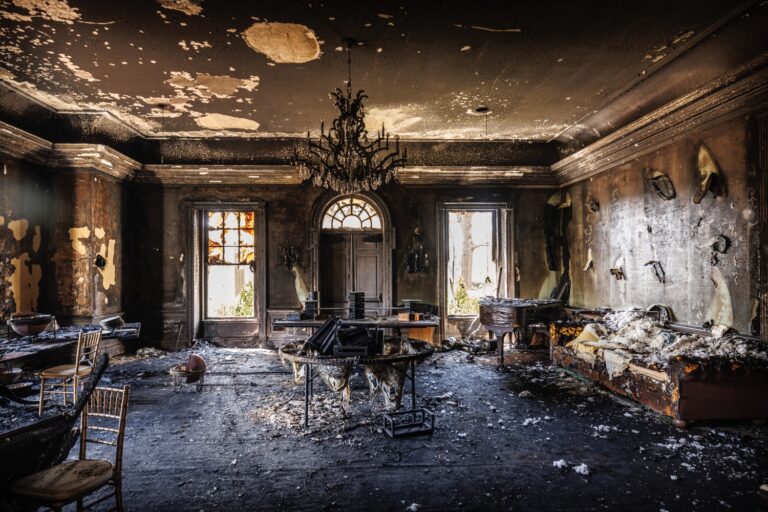 By Rabbi Yair Hoffman for the Five Towns Jewish Times
By Rabbi Yair Hoffman for the Five Towns Jewish Times
For the Refuah Shleimah of the author’s brother-in-law Boruch Zev ben Bracha
“Can we take those pre-fasting pills on Shabbos or is that considered hachanah?”
“Do I really bring my Tishah B’Av shoes to shul on Friday?”
“Is it true my cholent pot must remain unwashed until Sunday afternoon?”
“Is it really a two-part Havdallah where the al ha’eish is on motzaei Shabbos and the ha’gafen is on Sunday night?”
“Can we listen to music immediately on Sunday night?”
These questions and more are being posed to Rabbis throughout this entire week.
The reason is that the date of this upcoming Shabbos is the ninth of Av. Since it falls on Shabbos, the fast is delayed and only begins at sundown on Shabbos day (8:17 p.m. in New York, 2015). It is observed throughout Sunday, the 10th of Av.
Tishah B’Av falling on Shabbos presents a number of changes from the normal routine, hence the questions above.
Since Shabbos is a special gift, it is forbidden to show open signs of mourning. Therefore, there is no seudah ha’mafsekes, the meal of egg, bread, and ashes, on this Shabbos. And because of the fast, there is also no Havdallah on Saturday night—rather it is recited on Sunday night, except the blessing on the flame.
Changes In Davening
When we lein the Torah reading, we recite Moshe Rabbeinu’s lamentation of “How can I bear alone your burdens, troubles, and tasks,” to the tune of Eichah. We do not say Pirkei Avos this week, nor do we say the Tzidkascha Tzedek during Minchah.
Changes In Shul
What about sponsoring a Kiddush this Shabbos? While it may be too late, it is preferable to hold it on another date unless it is readily detectable that one is doing so. Shalosh seudos should be eaten at home and not in shul.
Since Havdallah is in two phases this week, some shuls recite the Borei Me’orei HaEish just before Eichah is read. Others have the custom of reciting the berachah at home.
It is a time to avoid excess socializing or going for walks, etc.
Zemiros, meat, and wine are permitted for all three meals.
Torah Learning
What about the daf yomi? One can learn Torah before chatzos on Shabbos (in New York, 1:01 p.m.) but afterward it is a bit of a debate. One may, however, fulfill the mitzvah of reading the parashah twice in Hebrew and once in Targum.
One may also learn the Gemaras that are permitted to be learned on a regular Tishah B’Av.
Shalosh Seudos
One can drink wine, eat meat, and bentch with a mezuman. One must stop eating and drinking before shekiyah. Mayim acharonim should also be done before sundown.
After Sundown
It is still permitted to wear shoes and sit on chairs after sundown. But once the Borchu of Ma’ariv is recited, these two prohibitions begin as well. There is no melaveh malkah.
Sunday Night
If necessary, one may drink water before the Sunday-night Havdallah, but one may not eat. Meat, wine (except for Havdallah), and music are forbidden until Monday morning. Haircuts and laundry are permitted on Sunday night.
When Havdallah is recited on Sunday night, neither the spices nor the Havdallah candle is used. Only the berachah on wine is recited, followed by the berachah of “HaMavdil Bein Kodesh l’chol.”
General Practices Of Tishah B’Av
Because the loss of the Beis HaMikdash was a national tragedy, the halachos of Tishah B’Av combine the laws of Yom Kippur and the laws of mourning.
Thus, we apply the five inuyim of Yom Kippur:
• No eating or drinking
• No washing
• No anointing
• No wearing leather shoes
• No marital relations (nor on Shabbos Tishah B’Av)
In addition to the Yom Kippur inuyim:
• We are not permitted to study Torah except for the passages that bring us to sadness
• We do not extend greetings to others
• We do not work
• We do not sit on a chair
The latter two, however, may be performed after chatzos (halachic noon).
When one does need to wash hands, such as after going to the restroom, one washes just until the knuckles.
When sleeping at night, one should be less comfortable than one is accustomed to being (S.A. 555:2). Thus, if one generally sleeps with two pillows, one pillow should be removed. A pregnant woman, however, does not have to do this if she will be uncomfortable.
Customs in shul. In shul the custom is to dim the lights, based upon the verse in Eichah (3:6) “He placed me in darkness.” We also remove the curtain from the ark that covers the sefer Torah. This is on account of the Midrash that interprets the verse in Eichah (2:17) “He tore His royal garments.” After Ma’ariv, Eichah is read and then a number of Kinos are recited.
During the day, additional Kinos are recited. It is the custom to recite them until halachic noon, so that one will not come to do work before then (S.A. O.C. 559:3 M.B. 13).
Men do not put on the tallis and tefilla in for Shacharis, but instead put them on in the afternoon for Minchah. This is based upon the Midrash (Vayikra Rabbah 6) that states “Betza imraso—He carried out His words (Eichah 2:17), He threw out His precious cloth: This refers to tallis. Hishlich mi’shamayim eretz tiferes Yisrael—He threw earthward from Heaven the glory of Israel (Eichah 2:1): This refers to tefillin.”
The author may be reached at [email protected]











14 Responses
Rabbi – you didnt answer you first 3 questions.
Namely, “Can we take those pre-fasting pills on Shabbos or is that considered hachanah?” no it must be mix4d with food..
“Do I really bring my Tishah B’Av shoes to shul on Friday?”
Yes..
“Is it true my cholent pot must remain unwashed until Sunday afternoon?”
Yes..
All great questions that I would like an answer for.
I was thinking the same thing. Great article, but would be great if you can answer the questions you began with. Thanks
But if one is home before going to shul, can you switch to non-leather shoes at home, after Shabbos, and before driving to shul?
If one is home after nightfall he may recite boruch hamavdil bein koidesh lechoil and switch to non leather shoes. He does not have to wait for borchu. That only applies when you are in shul and saying borchu right by the zman.
One issue I was hoping to see addressed in this column was not mentioned. On Sunday night after the fast it id customary not to eat meat and drink wine besides the wine of havdolo until Monday morning. However, on the issue of showering and washing clothes and music, it is unclear what the custom is since it is a nidche this year. Please adress those issues and quote the source.
Shower8ng ok music in morn8ng
Please provide reference on the shower.
According to the Mishna Berura תקנ”ח ס”ק ד וה’ ובשעה”צ אות ד everything is permitted at night except for drinking wine (besides havdala) and eating meat.
Haircuts, showers, music etc. are all permitted at night.
Using sad tunes on shabbos is dangerous. I understand the litvish world enjoys these things, but it should certainly be presented as an opinion/minhag, not din.
No offense,
A few of these halachos are disputed by great people.
1 – Most Shuls will not use a tone of lamentation when reading the words of Moshe in vaeschannan.
2 – the author mentions “shalosh seudos should be eaten at home and not in shul” many great people acted differently.
Generally, the author of this article is very open minded when writing such articles.
ArmedJew, singing sad tunes this shabbos IS minhag. Just as the prohibitions of the nine days were minhag (we observe them, nonetheless).
Nebach,
EVERYONE lains the passuk of Aycha Esa l’vadi in parshas d’vorim to the tune of aycha. That’s why we stop for שני a pasuk early.
Nebach.
The mishno beruro mentions only haircuts which probably includes showers but nothing more.
Nebach, NOT everyone reads eicho in devorim to the tune of megilas eicho. That is primarily a minhag ashkenaz that chasidishe circles do not keep. Chasidim are strenuously opposed to any act of aveilus befarhesio on shabbos, and that includes not singing the haftora to the tune of eicho and not lecho dodi either. Chasidim also wear regular shabbos clothing. It is obvious that the author is a litvak and paskens only according to litvishe poskim.